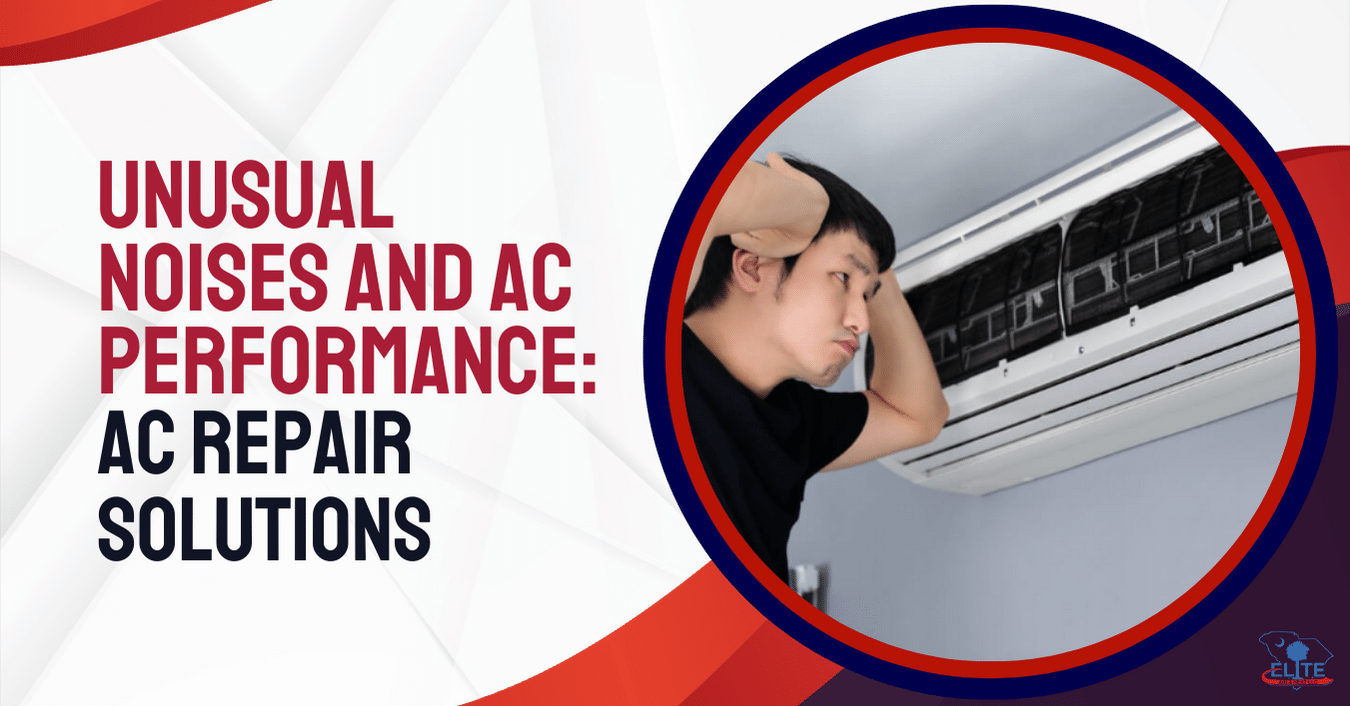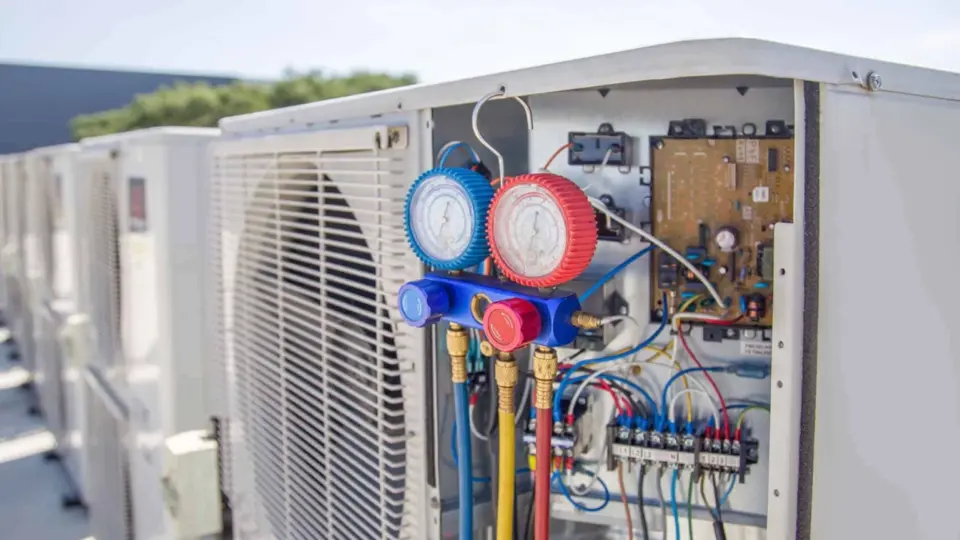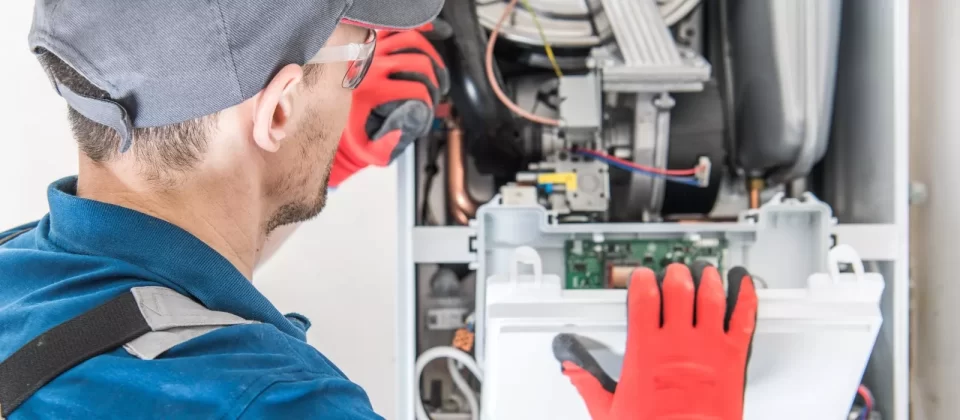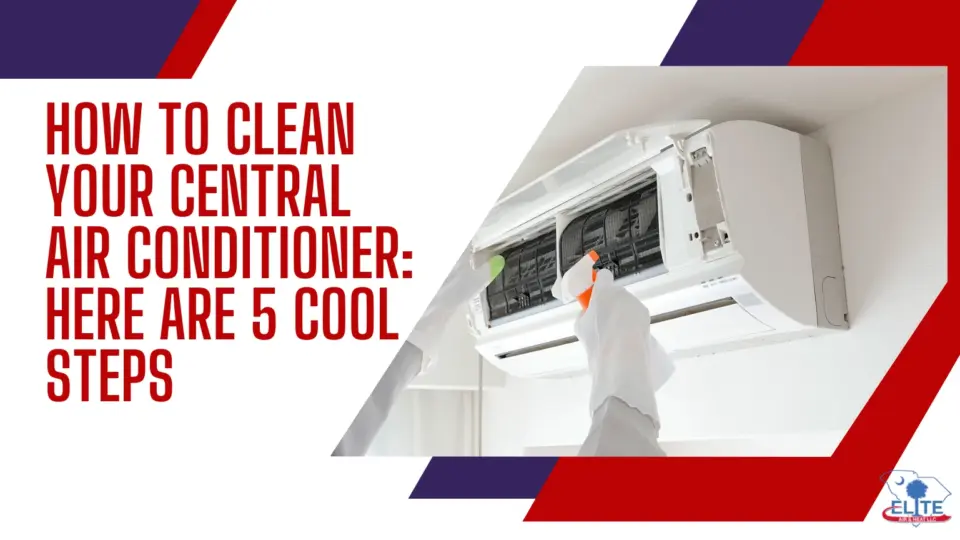Are you tired of the unusual noises coming from your AC unit? Do you need to improve your AC performance? Look no further! We specialize in providing top-notch AC repair solutions that will have your unit running smoothly and quietly in no time.
Odd noises coming from your air conditioning system could indicate underlying issues that need immediate attention. We have the necessary tools and a crew of seasoned specialists to diagnose and resolve any problems related to AC performance.
Whether it’s a loose belt, a malfunctioning fan motor, or a refrigerant leak, we know what to look for to get to the bottom of things and offer workable answers.
Don’t let a faulty AC system disrupt your comfort any longer – trust Elite Air & Heat for all your air conditioning repair needs. Contact us today for prompt and professional service that will keep you cool all year round.
What Causes AC Noises and How to Fix Them
Rattling or Banging Noises
- Causes: Loose parts, such as screws or panels, can cause rattling or banging noises. Damaged or loose fan blades can also create similar sounds.
- Fix: Inspect your AC unit to ensure all panels and screws are securely fastened. If you find loose parts, tighten them. Depending on the severity of the damage, the fan blades might need to be replaced.
Clicking or Popping Noises
- Causes: Clicking or popping noises can result from the expansion and contraction of the AC’s ductwork as it heats up or cools down.
- Fix: These noises are often normal and not a cause for concern. However, if they are excessively loud or persistent, having a professional inspect your ductwork for any issues is a good idea.
Squealing or Screeching Noises
- Causes: Squealing or screeching noises may be due to worn-out or loose fan belts. Over time, belts can become misaligned or damaged.
- Fix: Inspect the fan belts and replace them if worn or damaged. Ensure they are properly tensioned to prevent further noise.
Hissing or Whistling Sounds
- Causes: These sounds often indicate a refrigerant leak or issues with the AC’s refrigerant lines.
- Fix: Refrigerant leaks should be addressed by a professional. Fixing a refrigerant leak yourself can be hazardous and require specialized equipment.
Can Unusual AC Noises Affect Its Performance?
Absolutely! Unusual noises from your AC unit can indeed impact its performance. These noises often indicate underlying problems that, if left unattended, can exacerbate and lead to severe functionality issues or even complete system failure. Here at Elite Air & Heat, LLC, we’ve classified a few typical noises and their potential cause:
- Banging or Clanking: This could signify a loose or out-of-balance part within the AC system, such as the blower motor. If ignored, the constant wear and tear might lead to a complete breakdown.
- Buzzing: A buzzing sound often indicates an electrical issue. It could be as simple as a loose wiring or as complicated as a failing motor. Either way, immediate attention is required to prevent escalating damages.
- Hissing or Whistling: This noise is generally a sign of a refrigerant leak, which compromises the cooling efficiency of your AC and poses a potential health risk.
- Clicking: While clicking noises at startup and shutdown are normal, constant clicking could indicate a defective control or even a failing thermostat.
In all of these scenarios, the overall performance of your AC unit will be affected, leading to less efficient cooling and higher energy bills. The earlier these issues are addressed, the better it is for the longevity of your AC system.
Are There DIY Solutions for Noisy AC Units?
While some minor AC noise issues can be addressed with DIY solutions, exercising caution and knowing your limits is essential. Here are some DIY steps you can take:
- Clean the Unit: Dust and debris can accumulate on the fan blades and cause noise. Regularly clean the unit’s exterior and fan blades to ensure smooth operation.
- Tighten Loose Screws: If you notice rattling noises, inspect the AC unit for loose screws, panels, or brackets. Tighten them as needed to secure the components.
- Change Air Filters: Clogged air filters can restrict airflow, causing the AC unit to work harder and potentially create noise. Replace or clean air filters regularly.
However, it’s best to leave the diagnosis and repair to professionals for more complex issues like refrigerant leaks, motor problems, or compressor malfunctions. Fixing these issues with the necessary expertise can prevent the problem and pose safety risks.
When Should I Call a Professional for AC Repairs?
It is crucial to know when to call a professional for air conditioning repair to guarantee the durability and efficiency of your cooling system. Here are some signs that indicate it’s time to seek professional help:
- Unusual or Persistent Noises: If your AC unit makes unusual or loud noises that persist despite DIY efforts, contacting a professional technician is a clear sign.
- Poor Cooling Performance: If your AC struggles to cool your home adequately, it may have a refrigerant leak, compressor issues, or other complex problems that require professional attention.
- Increased Energy Bills: An unexpected surge in your vigor and vitality costs that does not match an increase in your usage may indicate an issue with your air conditioner. A trained specialist can identify and fix the problem to improve energy efficiency.
- Frequent Cycling: If your AC unit frequently turns on and off (short-cycling), it may indicate a range of problems, from thermostat issues to refrigerant imbalances, all of which should be examined by a technician.
- Visible Leaks: If you notice any water or refrigerant leaks around your AC unit, it is necessary to have a qualified specialist evaluate and repair the issue promptly.
- Unpleasant Odors: Foul odors from your AC may be due to mold or other contaminants in the ductwork or evaporator coil. A professional can clean and sanitize these components.
Unusual AC noises can be a cause for concern and may impact the performance of your cooling system. While do-it-yourself methods may be able to solve some very small problems, knowing when to call a professional for AC repairs is vital.
Tired of the Noise From Your AC? Call Us for Expert Repair!
At Elite Air & Heat, we’re committed to ensuring your air conditioning system delivers optimal performance and operates quietly. Our expert technicians provide comprehensive maintenance and repair services to ensure that your air conditioning machine continues to function effectively.
We aim to maximize your cooling system’s lifespan while minimizing operational noise so that you can enjoy a comfortable, quiet home environment.
Trust Elite Air & Heat for all your AC needs and experience the perfect balance of performance and tranquility. Contact us today for exceptional HVAC services that elevate your comfort.




